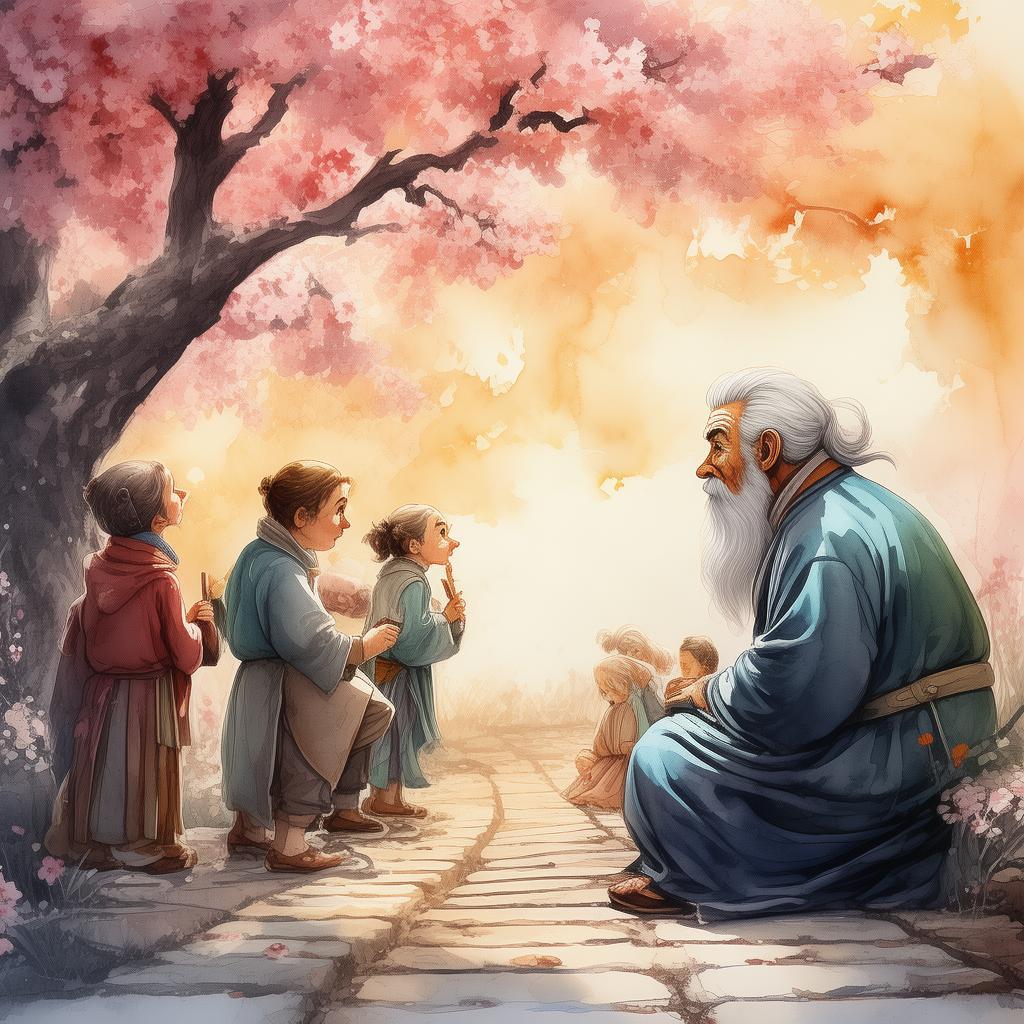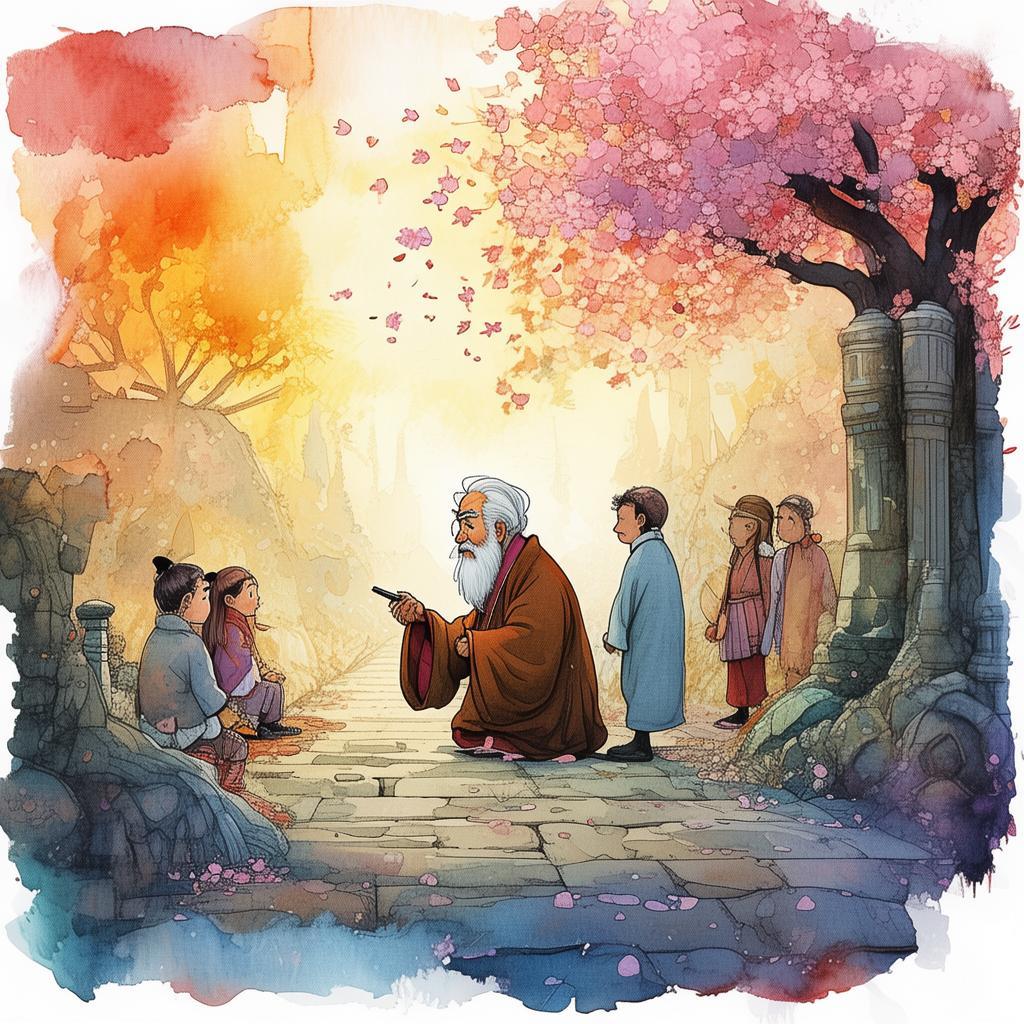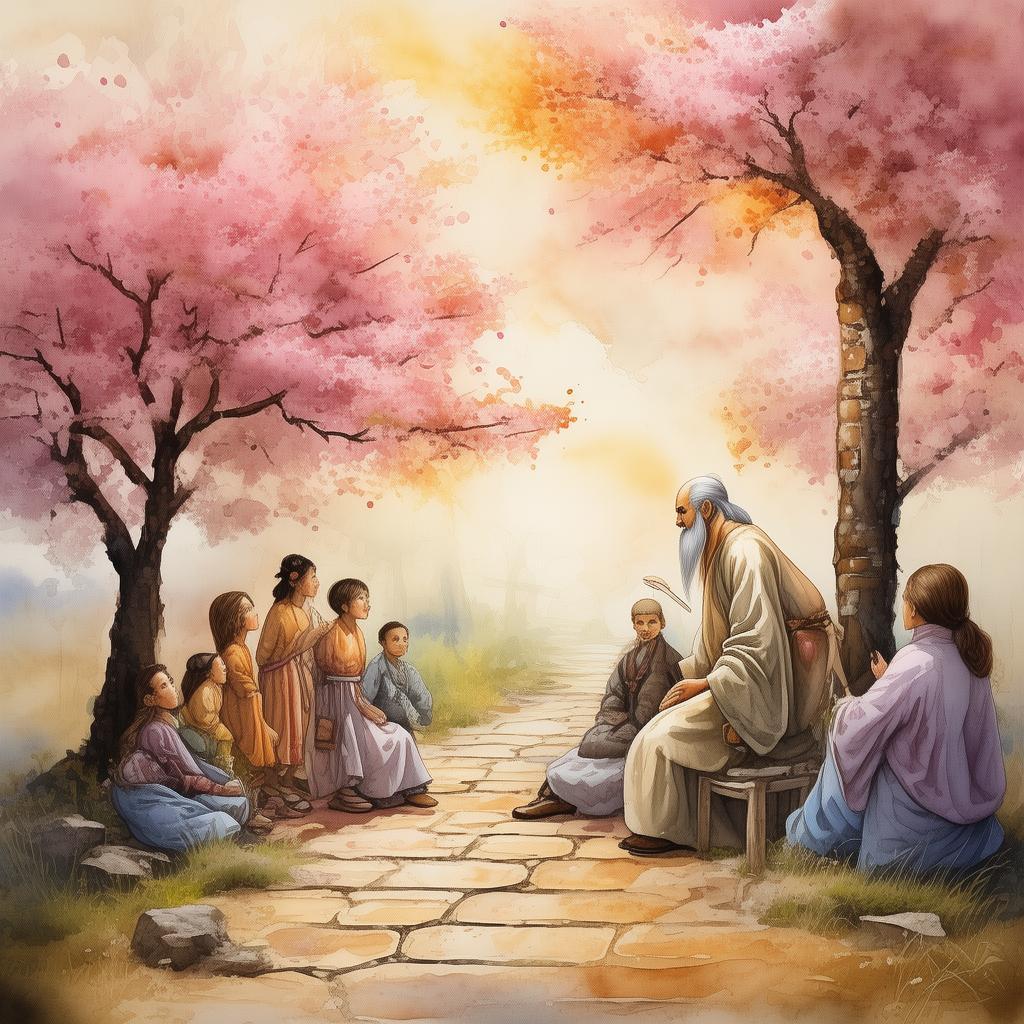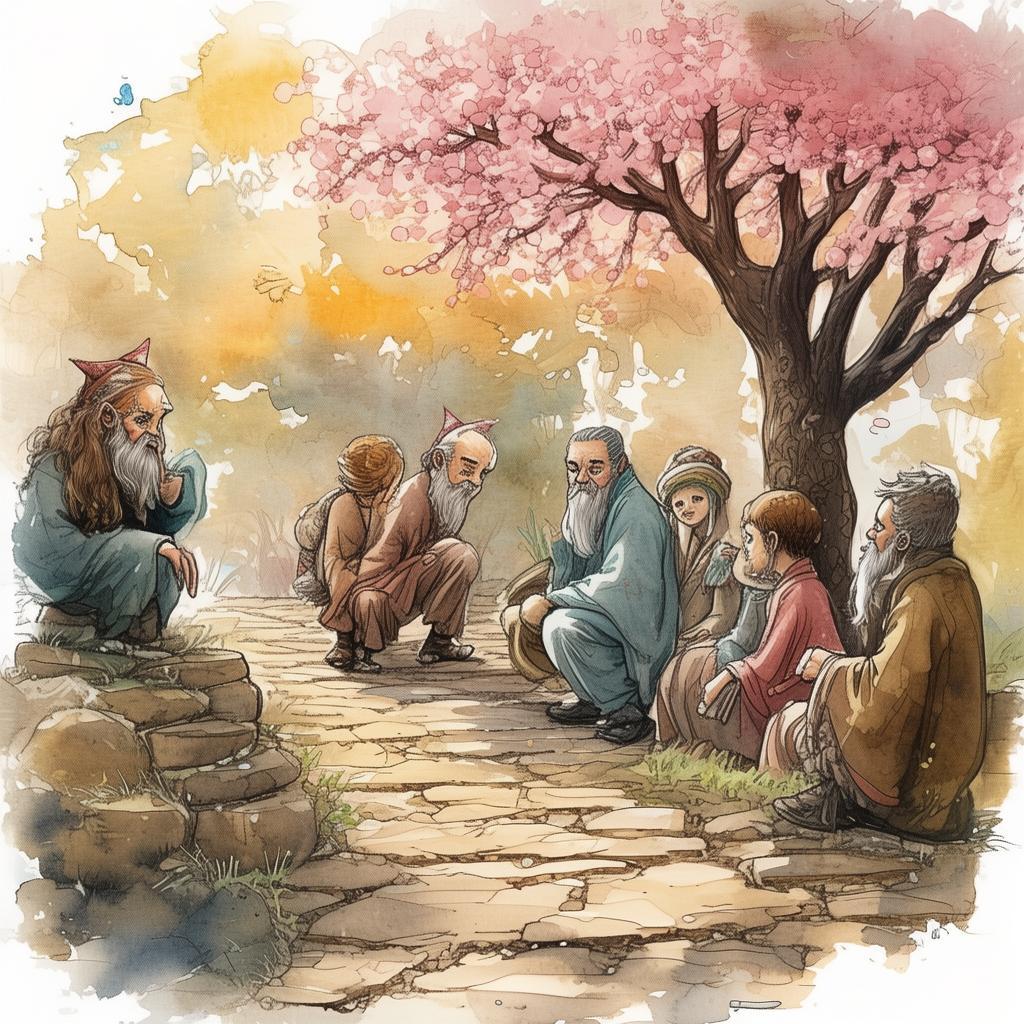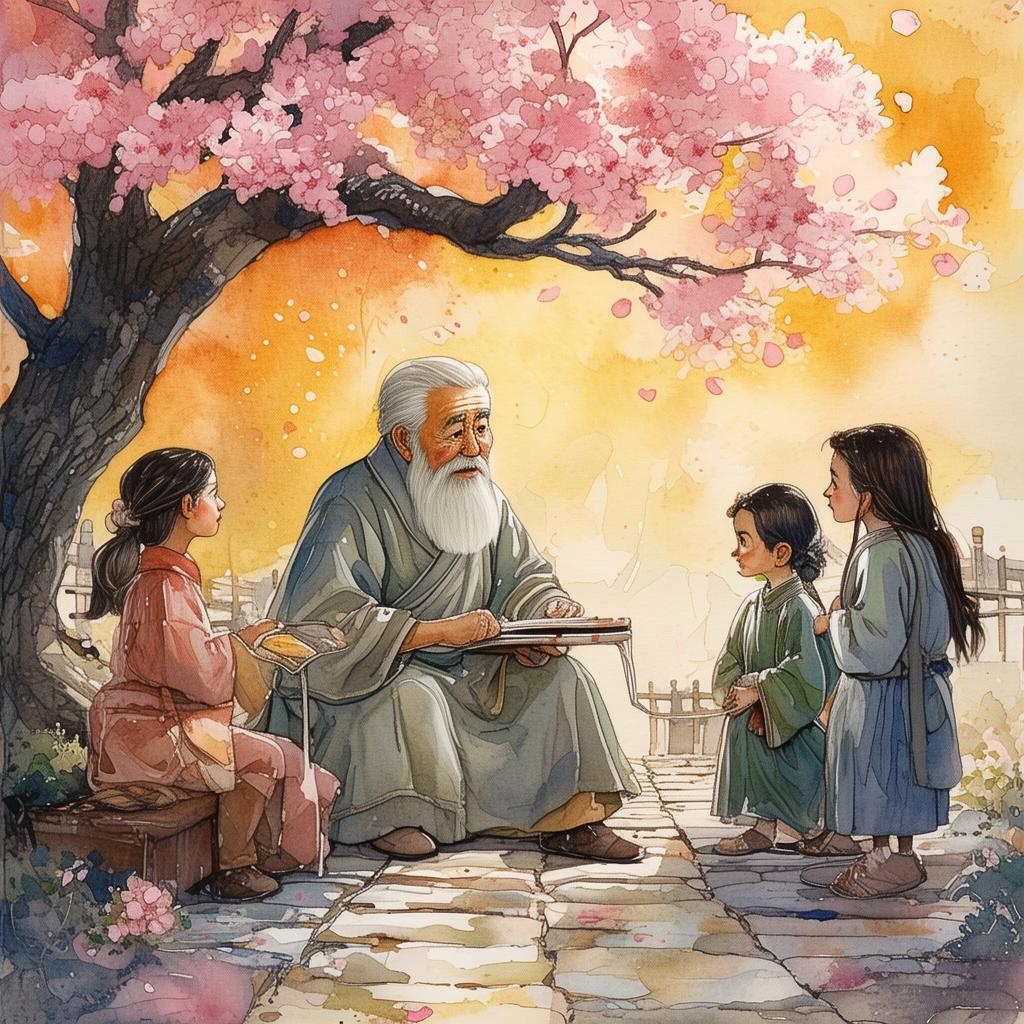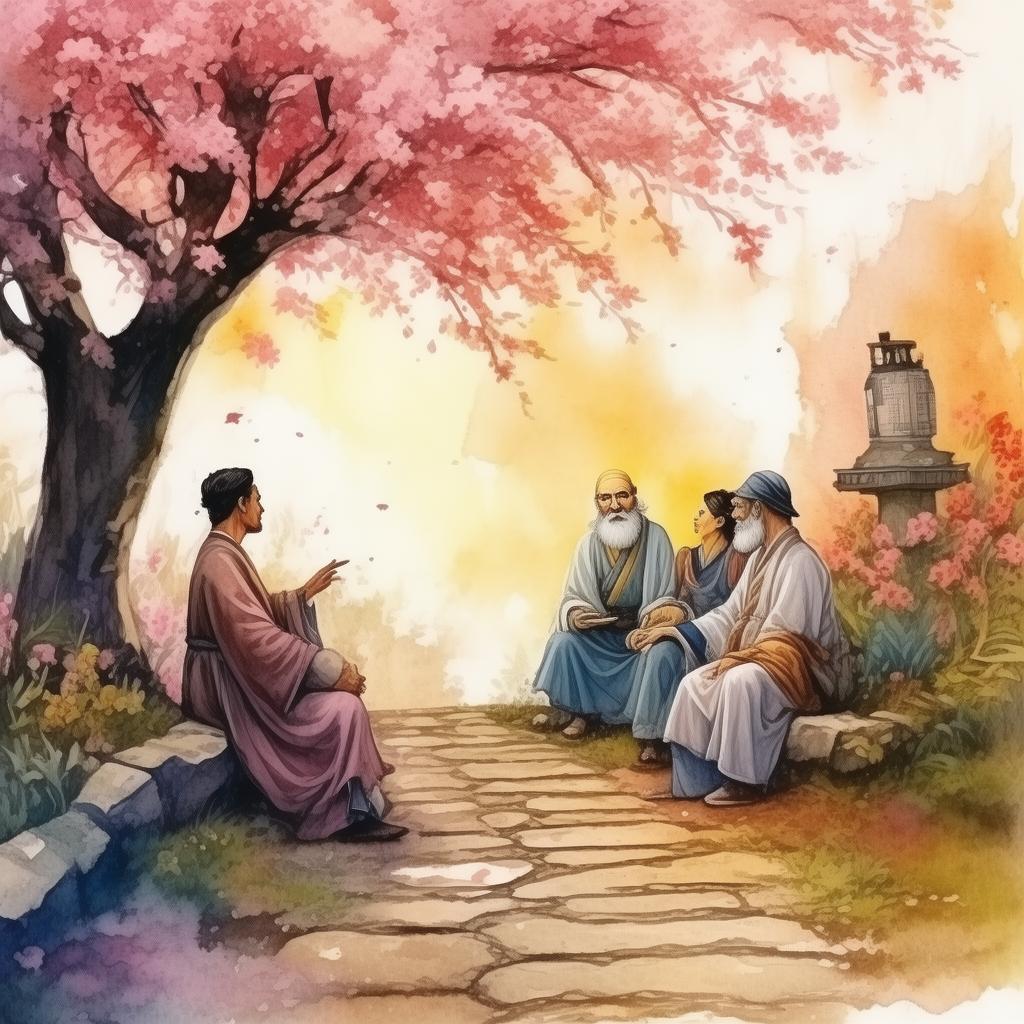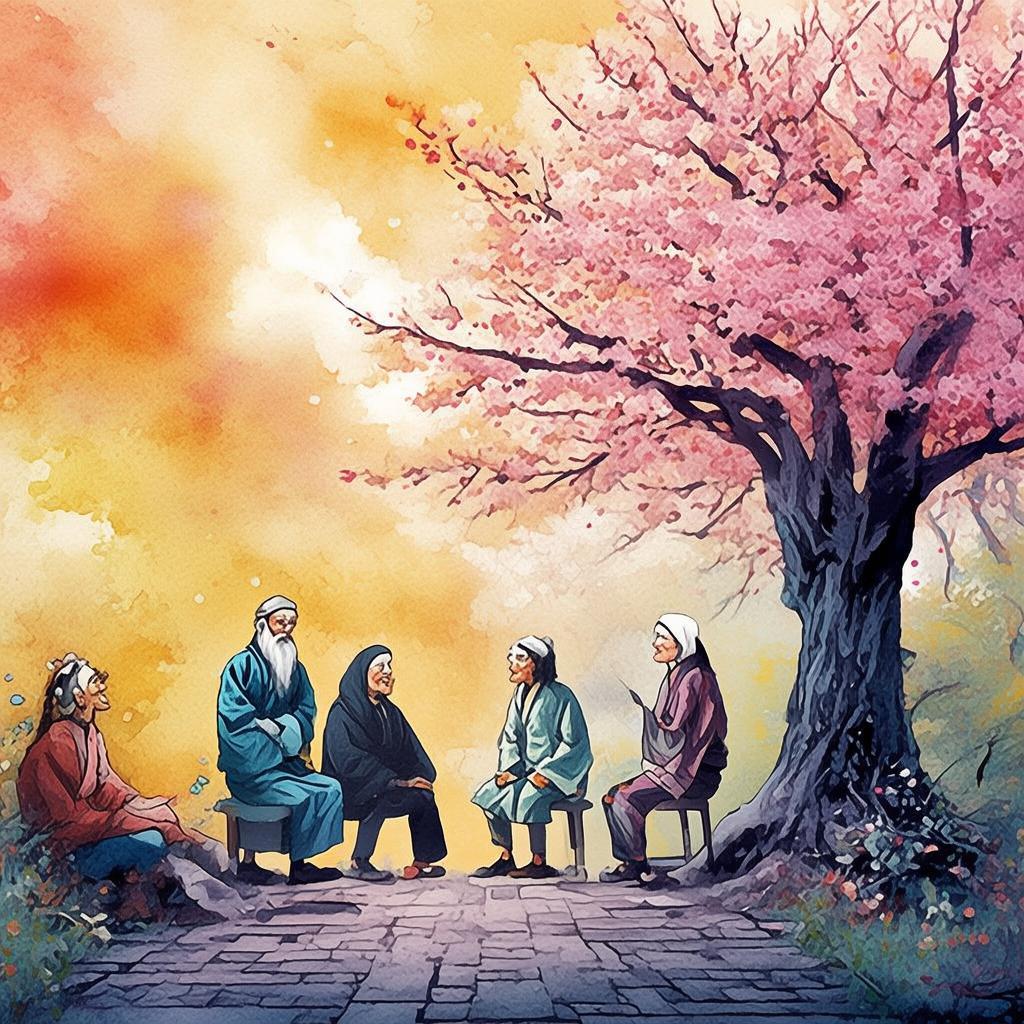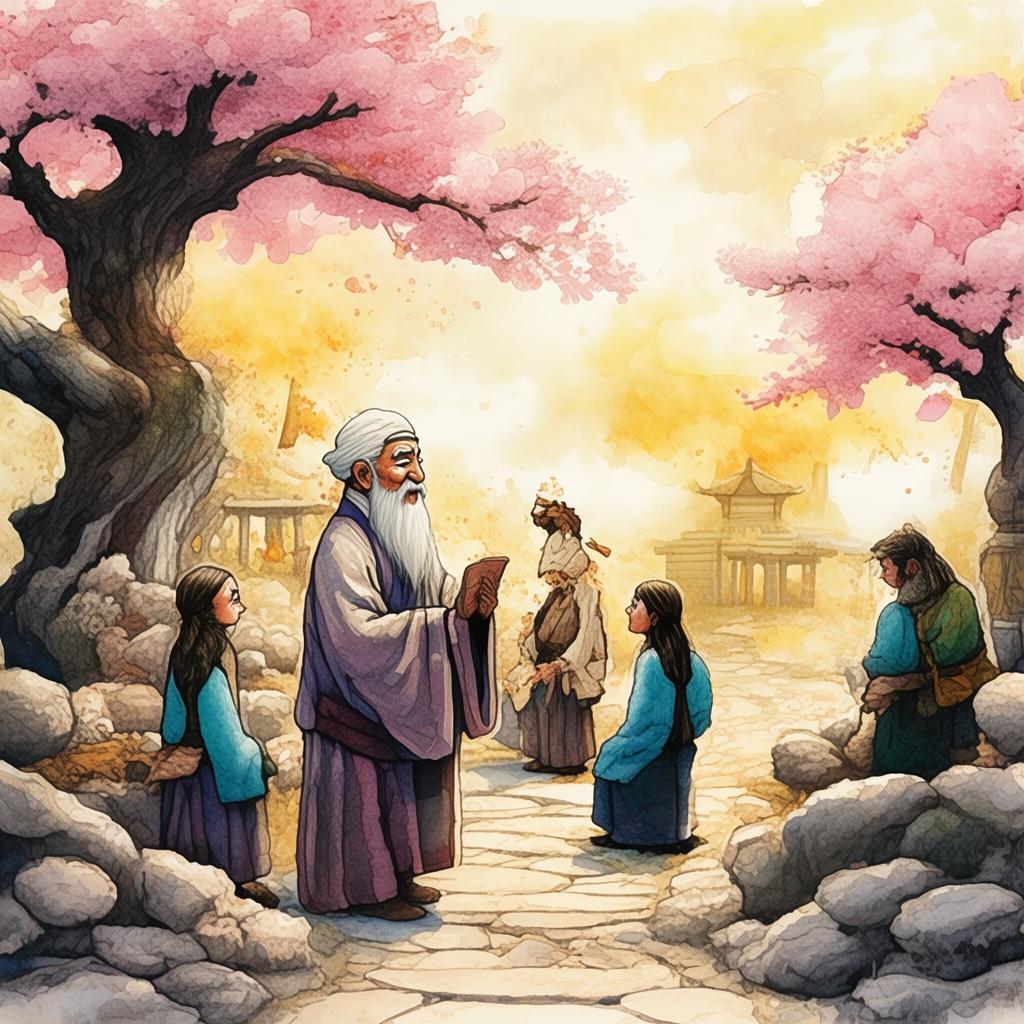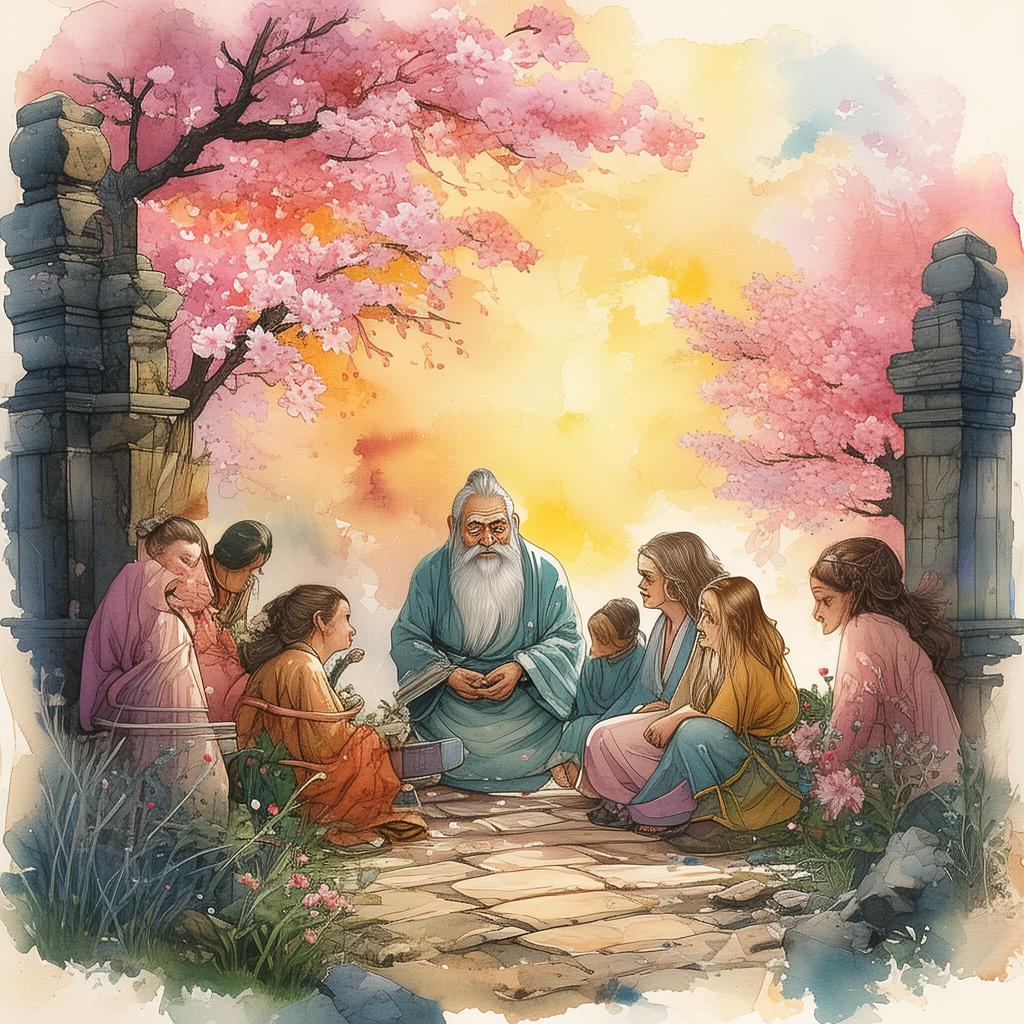The Melody of the Two Strings: A Harmony of Heartbreak and Redemption
In the heart of ancient China, two renowned musicians, Li and Mei, were said to possess the rare gift of producing the most exquisite sounds with their instruments. Li, a maestro of the guqin, a traditional Chinese seven-stringed zither, and Mei, a virtuoso of the pipa, a four-stringed lute, had both reached the pinnacle of their art. Yet, their paths were as divergent as the notes they played.
Li's melodies were known to soar like the phoenix, reaching the heavens and touching the hearts of all who listened. Mei's tunes, on the other hand, were as delicate as the lotus petals floating on a serene lake, soothing and captivating in their simplicity. Both musicians were revered for their unique styles, yet they were strangers in each other's worlds.
One fateful day, the Emperor summoned both to perform at the Imperial Court. It was a moment of unparalleled prestige for Li and Mei, yet it was also the beginning of their intertwined destinies. The Emperor, a connoisseur of music, had heard of their legendary talents and was eager to witness the fusion of their styles.
As the day of the performance approached, the musicians were given quarters in the same courtyard. The air was thick with anticipation and a strange kind of tension. By chance, Li and Mei found themselves in each other's company, a rare occurrence given their solitary natures.
Li, ever the reserved maestro, approached Mei with a bow and a humble smile. "I have heard of your pipa," he said, his voice soft and reverent. "It is a sound that can only be described as divine."
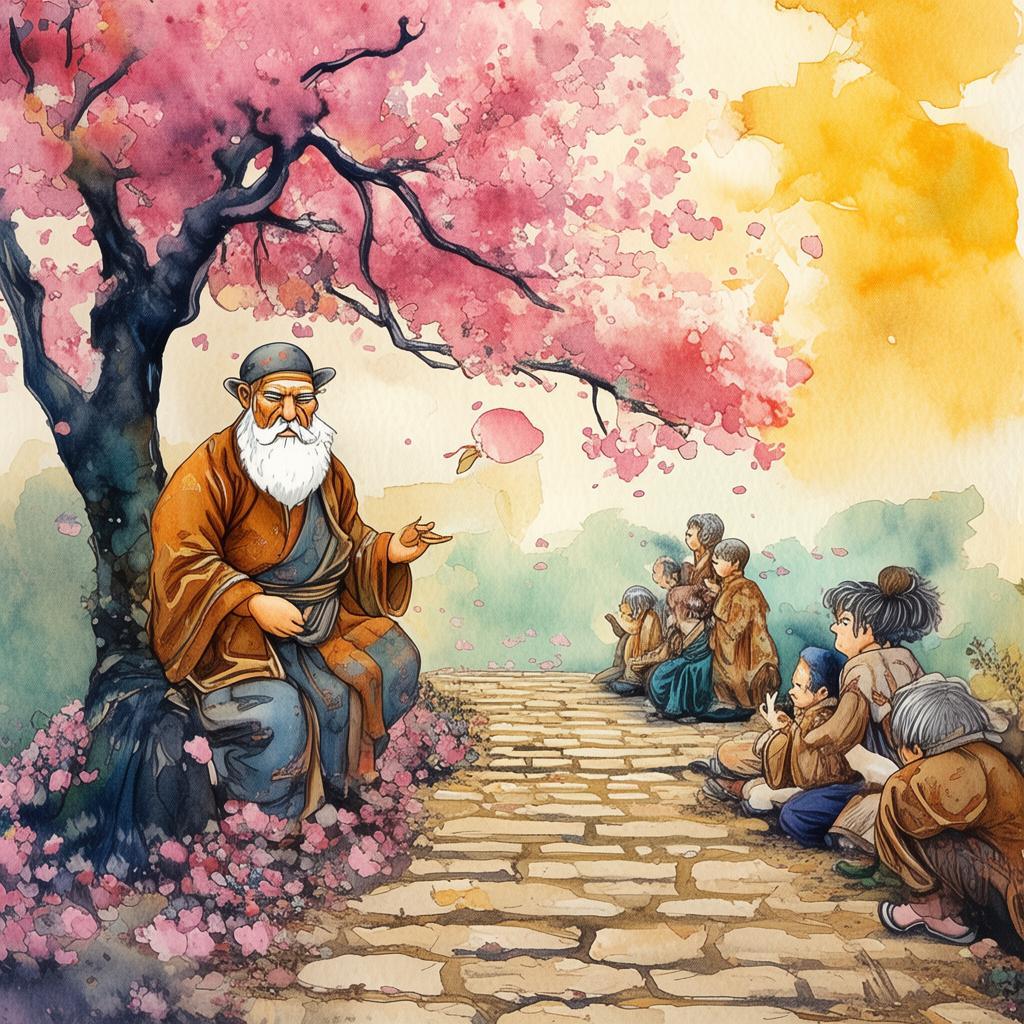
Mei, taken aback by Li's praise, replied with a graceful nod. "And your guqin," she said, her eyes reflecting a hint of awe. "It is a sound that transcends words."
As the night of the performance drew near, the musicians found themselves practicing separately, each seeking to perfect their pieces. Yet, there was an unspoken connection between them, a sense that their music was meant to be intertwined.
The night of the performance arrived, and the Imperial Court was filled with the finest in the land. As Li and Mei took their places on stage, the air was electric with anticipation. The Emperor himself was seated in the front row, his eyes gleaming with excitement.
Li began his performance, his guqin notes resonating through the grand hall. Mei followed, her pipa strings whispering a haunting melody. The audience was mesmerized, their hearts and minds carried away by the music.
As the performance reached its climax, Li and Mei's instruments began to harmonize, creating a sound that was unlike anything the world had ever heard. It was as if the music itself was a living entity, flowing from the stage and enveloping everyone present.
In that moment, Li and Mei understood the true meaning of harmony. It was not just the blend of their sounds, but the union of their hearts and souls. They had found a common ground, a shared purpose, in the music they created together.
But fate had other plans. The next morning, Li and Mei were informed that the Emperor had fallen seriously ill. The physicians believed that the illness was incurable, and the Emperor had only days to live.
The musicians were devastated. They knew that their performance had brought joy to the Emperor's last moments, but it had also sealed their fates. They were to perform again, this time to bid farewell to the Emperor.
As they stood on the stage once more, the music they played was different. It was filled with a profound sense of loss, a haunting reminder of the fleeting nature of life. The audience wept, and the Emperor, who had been unable to attend the first performance, listened from his deathbed.
In the final moments, as the music reached its crescendo, Li and Mei played their instruments with a newfound urgency. It was as if they were channeling the Emperor's spirit, allowing his essence to flow through their music.
The performance ended, and the Emperor passed away shortly afterward. Li and Mei were left in a state of profound grief, their hearts heavy with sorrow.
But as they walked back to their quarters, they realized that the Emperor's illness had brought them closer than ever before. They had shared a bond that went beyond music, a bond that was rooted in their shared loss.
In the days that followed, Li and Mei began to collaborate on a new piece, a composition that would honor the Emperor's memory and the harmony they had found in their music. They worked tirelessly, their instruments blending seamlessly, their hearts in perfect sync.
When the piece was complete, they performed it at the Emperor's funeral. The music was a fitting tribute to the man who had brought them together and had become a part of their own lives. The audience was moved to tears, and the Emperor's spirit seemed to be present in the room.
After the funeral, Li and Mei returned to their lives as solitary musicians, but they were no longer strangers. They had found a new purpose in their music, a purpose that transcended their own individual talents.
The legend of Li and Mei spread far and wide, and their music became a symbol of the profound connection that can be found in the most unexpected of places. Their story was one of heartbreak and redemption, of how music could bring two souls together and how, in the end, harmony was the truest form of unity.
And so, the melodies of Li and Mei continued to resonate through the ages, a testament to the power of music and the enduring bond between two souls who had found their harmony in the heart of sorrow.
✨ Original Statement ✨
All articles published on this website (including but not limited to text, images, videos, and other content) are original or authorized for reposting and are protected by relevant laws. Without the explicit written permission of this website, no individual or organization may copy, modify, repost, or use the content for commercial purposes.
If you need to quote or cooperate, please contact this site for authorization. We reserve the right to pursue legal responsibility for any unauthorized use.
Hereby declared.
